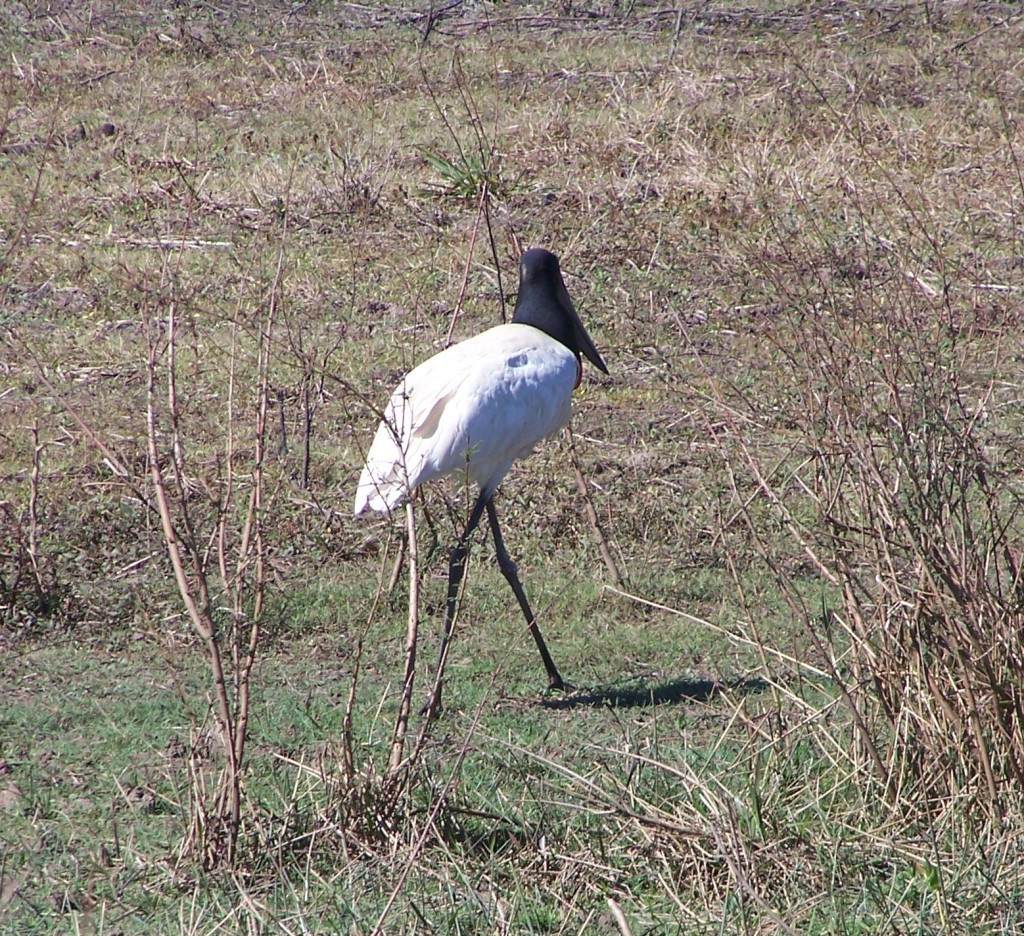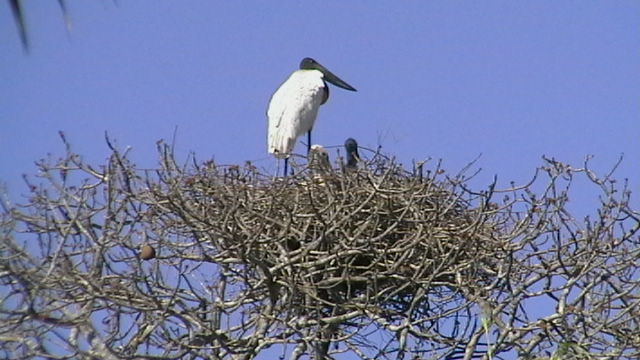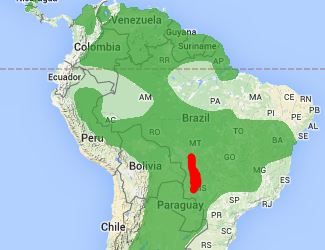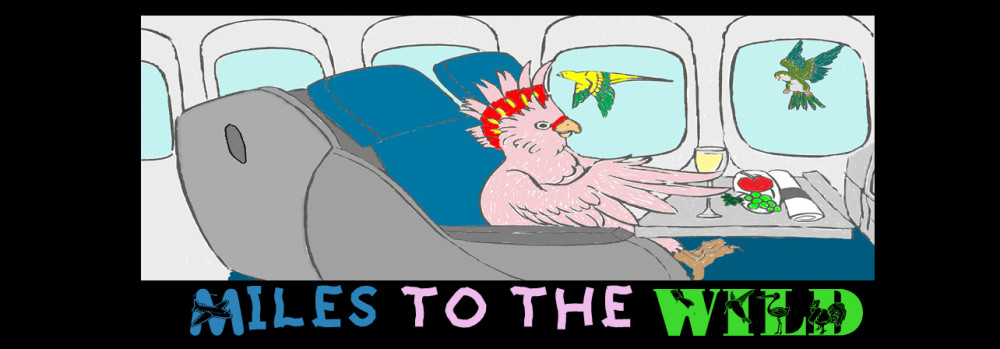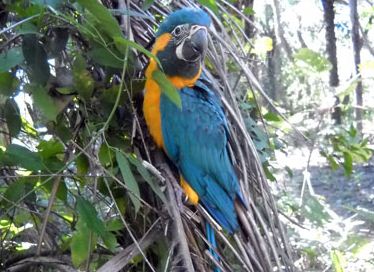
Southern South America
Most frequent flier programs divide the continent of South America into northern and southern regions. Brazil, which is one of the best destinations for eco-tourism falls into the southern region. I already have a blog with my recommendations for which programs to join if you are new to the world of miles and points.
The gateway cities for Brazil include Sao Paulo (GRU), Rio de Janieiro (GIG), Manaus (MAO) and Recife (REC). Other airports in Southern South America are Santiago (SCL), Buenos Aires (EZE), La Paz (LPB) and Santa Cruz Bolivia (VVI). Once you have been in the miles and points game for awhile, you will get a feel for which airline to use where but if you are just starting out, Wikipedia will show you a list of all airlines that fly into a given airport.
Let’s take Manaus for our first example. So we can see that Manaus is served by a few international airlines. AA flies from Miami, Copa flies from Panama City which has good connection to the USA and TAM flies from Miami as well. In most cases you will have to transit through the USA even if you are coming from Australia, Europe or Asia direct to Manaus or you could fly to one of the larger airports such as GRU or GIG and get a connecting domestic flight. If Manaus and the Amazon region are your destination, you have two choices-One World or Star Alliance. Sky Team can get you to GRU or GIG and then you would have to use domestic flights on GOL which is a partner of Delta.
ONE WORLD OPTIONS
From North America you can use American Airlines or LATAM.
From South America you can use LATAM.
From Australia and New Zealand you can use Qantas or LATAM via Santiago.
From UK and Europe you can travel via the USA using BA or IB to get to the USA, then AA, LATAM to South America.
From Asia or Africa there are no direct flights so you will need to travel via the USA or Europe.
STAR ALLIANCE OPTIONS
From North America you can use United, Avianca-Taca or Copa
From South America you can use Avianca-Taca
From Australia and New Zealand, Europe, Asia and Africa there are no direct flights, you will need to travel via the USA. Depending on which program’s miles you have, this may require one or two awards.
SKYTEAM OPTIONS
From North America you can use Aerolineas Argentinas, AeroMexico or Delta.
From Europe you can use Air Europa, Air France or KLM, or you can connect in the USA or Buenos Aires on Aerolineas Argentinas.
From Australia you can use Aerolineas Argentinas, from New Zealand possibly Qantas to Sydney and then Aerolineas Argentinas.
From Asia and Africa there are no direct flights, you will need to travel via the USA or Europe.
Delta partners with GOL which has extensive coverage of Brazil and connections to neighboring countries.
HOW MANY MILES WILL IT COST?
Every airline member of the 3 main alliances has it’s own frequent flier program. They often have alliances with other airlines outside the program. I have made some reference charts for the airline alliances and I strongly recommend that you check out the program of the airline in your country and the USA based partners of each program as the USA airlines tend to have the most lucrative bonuses. Americans can get very generous credit card bonuses. Details of credit card partners (and other partners) will be on each airline’s website, however often there are more lucrative sign up bonuses. Details are usually posted in the Flyer Talk thread so I strongly suggest you read this thread and the Miles Buzz forum before you apply for any cards just in case a better bonus has been offered. I don’t have any affiliate links and I recommend you do extensive research on your own when applying for airline credit cards.
USING ONE WORLD
AMERICAN AIRLINES
No matter where you live, frequent flyer programs based in the USA usually offer the best deals but it’s still a good idea to look at other members of the alliance. Try to avoid carriers that charge a fuel surcharge. Looking at AA’s award chart, we can see that Brazil is in South America Zone 2 except for Manaus which is in South America Zone 1.

South America Zone 2
So let’s look at the chart. AA no longer has all zones on one convenient chart so you need to look at the website for the region you are departing from. You will notice there are taxes and fees with certain routes and that the awards are prices as one way trips.
We can see that a South Pacific to Central/South America award will cost 45,000 miles each way (90,000 round trip) in economy, 82,500 (160,000 round trip) in business class and 112,500 each way (225,000 round trip in first class. AA doesn’t allow you to transit the USA on this award so you must fly on the only carriers that operate between Australia and South America-Qantas and LAN.
If you are based in North America, economy will cost 30,000 each way (60,000 round trip), business class is 57,500 each way (115,000 round trip) and first is 85,000 each way or 170,000 round trip. You would be flying on AA or LAN.
AVIOS (BA OR IB)
Avios can be a great bargain for shorter flights. The awards are priced by distance flown per segment rather than zone to zone.

Avios chart
Using the Great Circle Mapper, we can see that a direct flight from Miami to Manaus would cost 12,500 Avios each way, a direct flight from LAX to Sao Paulo would cost 30,000 Avios and a direct flight from NYC to GIG would cost 25,000 Avios. If you are using credit card miles, transferring them to Avios rather than UA or AA could save you some points. If you need a connection from elsewhere in the USA to the gateway city, you need to pay for that segment separately with the Avios cost for the distance flown. Example OKC-MIA is 1222 miles so you need to add 10,000 Avios to the total price of the ticket.

Great Circle Mapper
QANTAS FREQUENT FLYER
For Qantas, it is easiest to use their points calculator to see how many points you need, then look for availability. Here is an example of SYD-SCL-GRU in economy class. For the record, business class (if you can get it) would cost 112,000 each way.

QF Award
Awards are distance based, look what happens when we quote on Perth-Rio de Janiero! Price for economy goes up to 76,000 each way in economy!

.
If you are based somewhere else, leave a comment if you don’t understand this part and I will help you out. Meanwhile, here is a reference list for other One World carriers.
USING STAR ALLIANCE
Most people will have United or Singapore Airlines miles via credit cards or be buying Avianca Lifemiles during a 100% bonus promo.
UNITED AIRLINES
United Airlines is a USA based carrier that offers one way awards on its own flights and other Star Alliance carriers. Due to the size of their award chart, I can’t paste it here so will link to it and give examples. Seattle to Manaus has availability on several dates which I picked at random. They are colour coded for economy, business/first or all three classes.

.
Here is the best routing that came up. Beware of the “mixed cabin” in business class, that means you will have to be in economy for one or more segments.

.
Another random search on LAX-GRU has good availablilty for saver awards in economy but nothing in business or first on United’s own flights.

.
But scroll down to the partner airline awards and suddenly there is tons of availability in business but not in economy!

.
AVIANCA TACA LIFEMILES
Lifemiles has some very attractive promos to buy and share miles. While this doesn’t give you a free trip, it can greatly reduce the cost of a trip especially if you are after business or first class awards. You need to be an existing member of Lifemiles when they announce a promo so join now if you haven’t already. Use their calculator to get an idea of award costs. This will be a range which depends on class and any promos.

Lifemiles Calculator
Click on View Availability to see the exact breakdown.
They have a Star Alliance Award chart and you can see that they divide the continent of South America into northern and southern regions.

.
I have snipped the section that includes southern South America. Australia and New Zealand are in the “Others” category. The chart shows round trip awards but you can redeem one ways for half the price shown. For Aussies, it’s much cheaper to use US miles while they last or United for Star Alliance awards. I prefer to keep my Lifemiles for intra-South/Central America awards which can get pricy but are bargains using awards.

Lifemiles Awards to/from Southern South America
SINGAPORE AIRLINES
While there are no bargains here, if you are flush with Amex Membership Rewards you want to transfer to SQ, you can also book flights to South America using Krisflyer.

.
For those who want to use other programs, I have made up a reference list of all the airlines with links to their websites so check them out to see if any of them are better suited to your needs. Bear in mind that the tickets are not completely free, there is usually a booking fee of $25-50 and various taxes, but you would have to pay the taxes whether you pay cash or miles for the ticket in any case.
